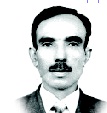Sajjad Shaukat
EVERY year when India celebrates Independence Day on 15 August Kashmiris, living on both sides of the Line of Control (LoC) and Pakistanis, including those of the world observe it as the Black Day to convey the message to the international community that New Delhi continues to usurp their inalienable rights of self-determination. During the partition of the sub-continent, the people of the state of Jammu and Kashmir (J&K) which comprised Muslim majority decided to join Pakistan according to the British formula. In this regard, the historical resolution was unanimously passed on 19 July 1947 by the All Jammu and Kashmir Muslim Conference in Abi Guzar, Srinagar. It decided to merge Kashmir with Pakistan, considering the geographical proximity—majority of Muslim population (77%), language and cultural relations of Jammu and Kashmir.
But, Dogra Raja, Sir Hari Singh, a Hindu who was ruling over the J&K in collusion with the Indian Prime Minister Jawaharlal Nehru and Governor General Lord Mountbatten joined India. The design to forcibly wrest Kashmir began to unfold on 16 August 1947, with the announcement of the Radcliffe Boundary Award. It gave the Gurdaspur District—a majority Muslim area to India to provide a land route to the Indian armed forces to move into the state of J&K. There was a rebellion in the state forces, which revolted against the Maharaja and were joined by Pathan tribesmen. Lord Mountbatten ordered armed forces to land in Srinagar. Indian forces invaded Srinagar on 27 October 1947 and forcibly occupied the J&K in utter violation of the partition plan and against the wishes of the Kashmiri people.
When Pakistan responded militarily, on 31 December 1947, India made an appeal to the UN Security Council to intervene and a ceasefire ultimately came into effect on 01 January 1949, following UN resolutions calling for a plebiscite in Kashmir. Particularly, the Security Council adopted resolution 47 (1948) of 21 April 1948, which promised a plebiscite under UN auspices to enable the people of Jammu and Kashmir to determine whether they wish to join Pakistan or India. On 5 February 1964, India backed out of its promise of holding plebiscite. Instead, Indian Parliament declared Kashmir-an integral part of the Indian union. It is mentionable that 5 August was the blackest day of Indian so-called democracy when her Parliament revoked Articles 35-A and 370 of the Constitution, which gave a special status to the disputed territory of the J&K. The act split the J&K into two territories to be ruled directly from New Delhi.
Thus, Indian fanatic Prime Minister Narendra Modi’s government led by extremist ruling party BJP unilaterally annexed the India-occupied Kashmir (IoK) to turn Muslim majority into minority. In fact, Premier Modi and the BJP in connivance with other similar outfits like RSS have accelerated anti-Kashmir measures. Implementing the ideology of Hindutva ((Hindu Nationalism), Indian extremist rulers’ various other moves such as issuance of domicile certificates to 40000 non-Kashmiris to bring demographic changes in the Muslim-majority area and intermittent shelling inside Pakistani side of Kashmir in relation to the LoC, which has killed hundreds of innocent villagers show India’s fascist policies.
Indian cruel actions against the Kashmiris reached peak on 5 August 2019 when New Delhi also started the siege of the IOK and imposed strict lockdown by increasing military troops up to more than 900,000. In a year, Indian military and paramilitary troopers have martyred tens of thousands of the Kashmiris, including women and children through ruthless tactics, firing of pallets and extrajudicial killings. Due to clampdown in the IoK, shortage of foods, medicines for the patients and coronavirus-affected, Kashmiris have been facing painful deaths. In order to conceal India’s state terrorism, Kashmir has been cut off from rest of the world. But, under these adverse circumstances, Kashmiris are still violating the lockdown by protesting against Indian illegal actions.
Modi-regime has also increased gangs of RSS volunteers permanently stationed in the occupied Kashmir. Indian army has been given a free hand to play holly with the blood of the Kashmiris. Therefore, Indian forces have increased atrocious crimes, knowing that they would not be prosecuted. While, since 1989, Kashmiris have already been enduring various forms of state terrorism such as tortures, kidnappings, rapes and massacre, no Indian soldier has ever been taken to task for his heinous crimes. Hence, since the military lockdown started, Indian forces have intensified the employment of these brutal tactics. Almost, 100,000 Kashmiris have died in the past 30 years.
Western media, human rights groups such as Human Rights Watch, Amnesty International and leaders of various countries and UN have repeatedly condemned Indian illegal measures and human rights violations which continue in the IoK. Meanwhile, 5 August (2020) was the first anniversary of India’s revocation of the special status of the state of the J&K. Kashmiris living on both sides of the LoC and their brethren in Pakistan, including rest of the world celebrated this very day as the Black Day, while Pakistan, especially observed 5 August as ‘Youm-e-Istehsal-e-Kashmir’ (Day of Exploitation in occupied Kashmir/‘Kashmir Military Siege Day’) to display solidarity with the people of Indian Illegally Occupied Jammu and Kashmir (IIOJK). In this connection, conferences and demonstrations which had already started in world’s major cities, increased on 5 August as people protested against India, while reminding the international community of the rights of self-determination of the Kashmiris as recognized by the UNO-related resolutions.
Notably, UN human rights experts on 4 August 2020 called on India and the international community to take urgent action to address the “alarming” human rights situation in IoK Jammu and Kashmir — “to investigate all cases of human rights violations, including extrajudicial killings, enforced disappearances, torture and arbitrary detentions.” Nonetheless, like the past years, Indian Independence Day will be observed as the Black Day by the Kashmiris, Pakistanis and in rest of the world.
—The writer is freelance columnist based in Lahore.









